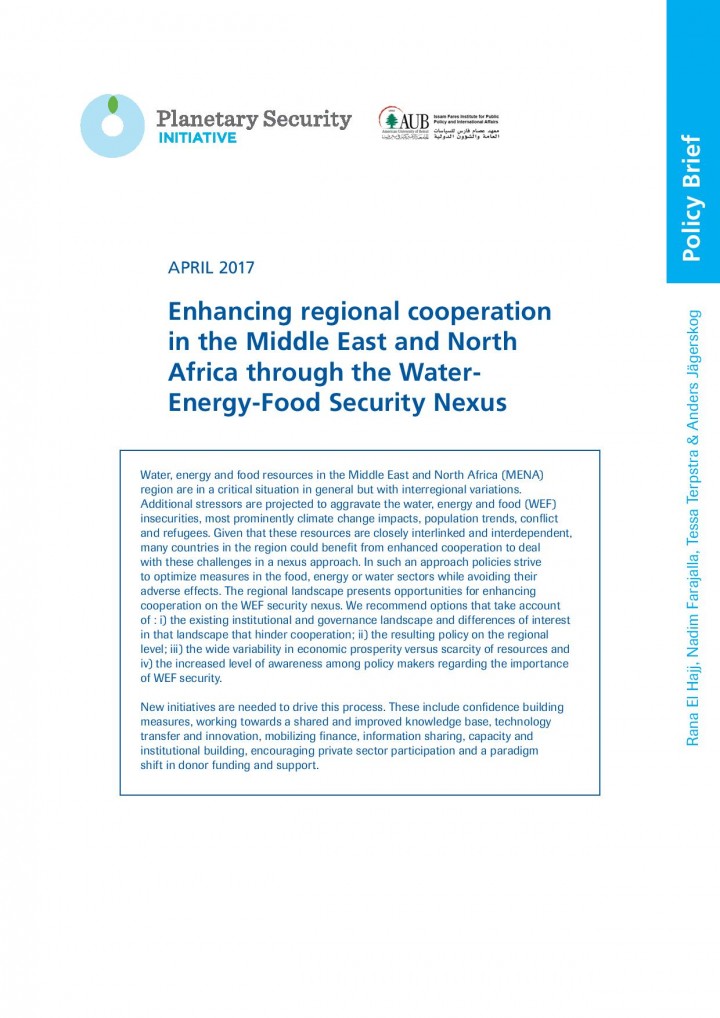Enhancing regional cooperation in the Middle East and North Africa through the Water-Energy-Food Security Nexus Policy Brief El Hajj, R., Farajalla, N., Terpstra, T., and Jägerskog, A. (2017)
Water, energy and food resources in the Middle East and North Africa (MENA) region are in a critical situation in general but with interregional variations. Additional stressors are projected to aggravate the water, energy and food (WEF) insecurities, most prominently climate change impacts, population trends, conflict and refugees. Given that these resources are closely interlinked and interdependent, many countries in the region could benefit from enhanced cooperation to deal with these challenges in a nexus approach. In such an approach policies strive to optimize measures in the food, energy or water sectors while avoiding their adverse effects. The regional landscape presents opportunities for enhancing cooperation on the WEF security nexus. We recommend options that take account of : i) the existing institutional and governance landscape and differences of interest in that landscape that hinder cooperation; ii) the resulting policy on the regional level; iii) the wide variability in economic prosperity versus scarcity of resources and iv) the increased level of awareness among policy makers regarding the importance of WEF security.
New initiatives are needed to drive this process. These include confidence building measures, working towards a shared and improved knowledge base, technology transfer and innovation, mobilizing finance, information sharing, capacity and institutional building, encouraging private sector participation and a paradigm shift in donor funding and support
Bibliographic information
El Hajj, R., Farajalla, N., Terpstra, T., and Jägerskog, A. (2017). Enhancing regional cooperation in the Middle East and North Africa through the Water-Energy-Food Security Nexus Policy Brief Issam Fares Institute - American University of Beirut (AUB), Beirut, Lebanon
Filter / Tags
Factsheets and policy briefsEnglish
Downloads
Enhancing regional cooperation in the Middle East and North Africa through the Water-Energy-Food Security Nexus
Type: application/pdf
Size: 0.41 MB

